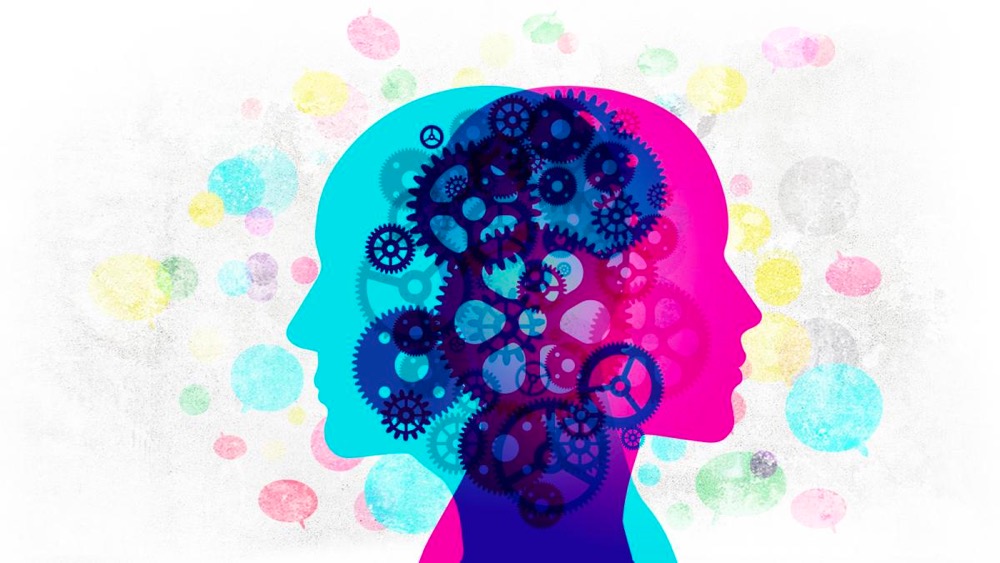Top 10 Benefits of Learning a Language, and 1 Unexpected Benefit

We know that speaking several languages sounds cool. Bilingual and trilingual people usually like to brag a bit about it, and no one can blame them. In our globalized modern world, being able to connect with more cultures creates both personal and professional opportunities. But what are precisely the benefits of learning a new language?
Here are ten of them that I hope will get you started learning a language today.
But just before that, if you're looking for an app to learn a language fast and have fun doing it, then download Lingidy for free on you iPhone or iPad and are start reaping the those benefits today.
1. Improve your brain
Many studies show that learning a language makes you smarter, which means it improves your brain potential. A 2012 study found that our cerebral cortex, responsible for cognitive functions, gets bigger after learning a new language. When your cerebral cortex grows, abilities such as self-awareness, perception, and attention improve. When learning a language, your brain creates new connections and grows.
Learning a language also has the great benefit of enhanced memory. That same study found that the hippocampus grows in the process alongside the cerebral cortex. Your hippocampus is the brain area related to memory (long-term and short-term), spatial memory, and navigation skills. When learning a new language, you use that part of your brain to remember grammar rules and vocabulary. Over time, it helps your memory in other areas, like remembering places or events more vividly.
Finally, researchers have found that people who speak different languages are much better at multitasking or switching attention. When you get used to switching between languages, you also get used to switching your attention between everyday tasks. You also become better at problem-solving and focusing.
2. Slow mental aging
Learning languages not only makes us smarter but also has a significant impact on our health.
As I said before, learning a language helps with memory and cognitive functions. One of the first symptoms of mental aging is memory loss. Cognitive flexibility is the ability to shape complex thoughts in everyday life, and it declines significantly with age. A study found that bilingualism helps maintain cognitive flexibility and even delay the onset of dementia symptoms.
Switching to the appropriate language depending on context requires cognitive flexibility and control, which are also used to switch between everyday tasks. By training your brain to do it when learning and speaking another language, you work on your cognitive flexibility and slow the brain aging process.
3. Create career opportunities
It’s well known that in the modern world, speaking a second language is an asset, especially for work purposes. You’ll likely find a time when speaking a foreign language has its benefits in your career. It could be to obtain a job or a career advancement. Many positions require you to speak a second language, and for many more, it’s not required but preferred. Between two equally skilled and experienced candidates, the language skills can make a huge difference.
Mastering a second language is essential in some fields, like hospitality or tourism. That’s a lot of exciting jobs to think about.
Suppose you own a business or are dependent on business revenue. In that case, a second language could help you get new clients or make new connections, which is always good for business.
4. Meet new people
As social beings, we generally find connecting to people enriching and fulfilling. Learning a language has the benefits of making us connect to the native speakers (as an essential part of the learning process). By speaking two or more languages, You’ll get to talk to a broader range of people in your professional and personal life.
5. Open yourself to different cultures
When you learn a new language, you open up to the culture related to that language. You will likely consume the cultural media like books and movies, get immersed to understand the languages better, and maybe travel to the countries where the language is spoken. You’ll have a better appreciation of different countries’ art, history, and traditions. By opening yourself to a different culture, you create new opportunities for yourself, and you feed your mind with meaningful experiences.
A better understanding of another culture leads to a better acceptance, tolerance, and empathy towards others. That alone should be enough to get us all started learning a language.
6. See the world from another perspective
Traveling and exploring places are great. Experiencing them as a local is much better. The benefit of learning a new language is that it will make you travel, but more importantly, it will bring you to places you’ll only get to know by having conversations with locals. People love to share about their culture and community as soon as they feel that you make an effort to communicate with them.
Speaking different languages can also make you see the world differently. As we generally become more emotional when debating in our native language, debating in our second language gives us the distance we sometimes need to think clearly and organize our ideas.
7. Gain confidence
Learning a language can boost your confidence. First, you gain self-confidence by succeeding in learning something as highly complex as a new language. It is challenging, time-consuming, and gratifying. Learning a new language is something that you can be (and should be) proud of, and it can give you the confidence to attempt other challenging tasks.
Secondly, talking with people in another language gives you confidence. Because by learning a new language, you are forced to practice speaking with native speakers, you have to get out there and leave your comfort zone. It is a very efficient way for shy or introverted people to work on confidence and social skills.
8. Feed your creativity
Learning a language would boost our creativity by making new connections in our brains. The more you feed your brain with different content and ideas, the more new ideas you’ll likely produce. The benefit of exposing the brain to new ways of thinking is that it helps making new connections.
9. Understand your native language better
By learning the grammar of a new language, you think about how your native language is built. Why do we use some grammar rules, different idioms, and the same world in a language is translated into so many different words in another? Thinking about how a language is built makes you fully understand that language. Yet, we never think about our native language. We learned it at such an early age we didn’t ask ourselves these questions. It’s precisely by asking yourself questions about your language that you get better at it, and you’ll only do it by comparing your native tongue with another one.
10. Learn more languages and find it easier
Learning a third language will seem more manageable for different reasons once you master a second language. First, you have done it before and won’t be discouraged by the challenging task. Having the right mindset is essential when learning a new language, so you’ll be more likely to succeed by knowing you can complete the task.
Secondly, as we saw before, learning a language improves your learning skills and memory. You train your brain to be more efficient at learning new things (and remembering them) and adapting flexibly to new situations, which you’ll need to learn a third language.
11. Find a life partner
Who knows, the love of your life (or at least a good partner who sticks to your life for a while) could be from another country, another culture. In our globalized modern world, multinational relationships are more frequent: we travel more, study and work abroad, and soon, climate-change migrations will encourage the mix of cultures.
Speaking a second language will open new opportunities to meet people and, among them, a potential partner. You just need to master the love language of their culture to avoid any misunderstanding in your relationship.
In summary, learning languages has many social, intellectual, and health benefits. Plus, if we consider that it helps us to better empathize and connect with each other, it doesn’t benefit us only individually but also as a community or society. If you still hesitate, learn about the most efficient ways to learn a language.
Or if you're already convinced, then download Lingidy for free on you iPhone or iPad and get started today!

Barbara Chauvet
Vancouver Canada
Linguist @ Lingidy
More Articles about Learning Languages

Easiest Languages to Learn
With a new language comes new opportunities, new friends and an increased ability to connect with people from other cultures.

Say I Love You
One of the first things we want to learn when discovering a new language is how to say I love you.

Most Spoken Languages
Just a few centuries ago, the most widely spoken languages covered small geographical areas compared to today.
Have you written an article that we should feature in the section above? Email info@vidalingua.com with a link to your article and an explanation of why it would interest our readers.
